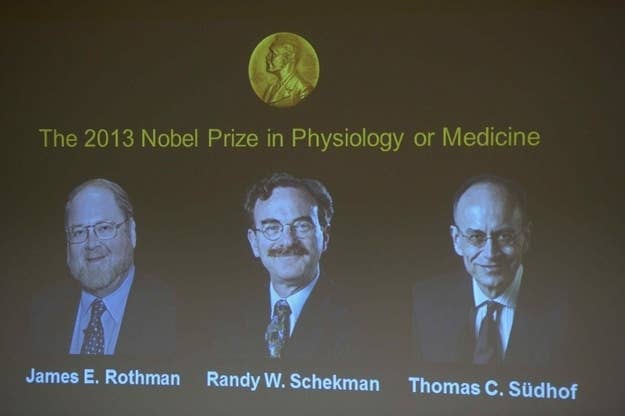
Three scientists won the 2013 Nobel medicine prize on Monday for their work on how hormones and enzymes are transported within and outside cells, the Karolinska Institute in Stockholm announced Monday.
Their work provides insight into diseases such as diabetes and Alzheimer's, the Institute said.
James Rothman, 62, of Yale University, Randy Schekman, 64, of the University of California, Berkeley, and Thomas Sudhof, 57, of Stanford University shared the $1.2 million prize for their research on how tiny bubbles known as vesicles carry chemicals such as insulin within cells.
"Each cell is a factory that produces and exports molecules," the Institute said in its announcement. "For instance, insulin is manufactured and released into the blood and chemical signals called neurotransmitters are sent from one nerve cell to another. These molecules are transported around the cell in small packages called vesicles. The three Nobel Laureates have discovered the molecular principles that govern how this cargo is delivered to the right place at the right time in the cell.
"Through their discoveries, Rothman, Schekman and Südhof have revealed the exquisitely precise control system for the transport and delivery of cellular cargo. Disturbances in this system have deleterious effects and contribute to conditions such as neurological diseases, diabetes, and immunological disorders."
Established by Swedish industrialist Alfred Nobel, the Nobel Prizes have been handed out by award committees in Stockholm and Oslo since 1901. The winners always receive their awards on Dec. 10, the anniversary of Nobel's death in 1896.
